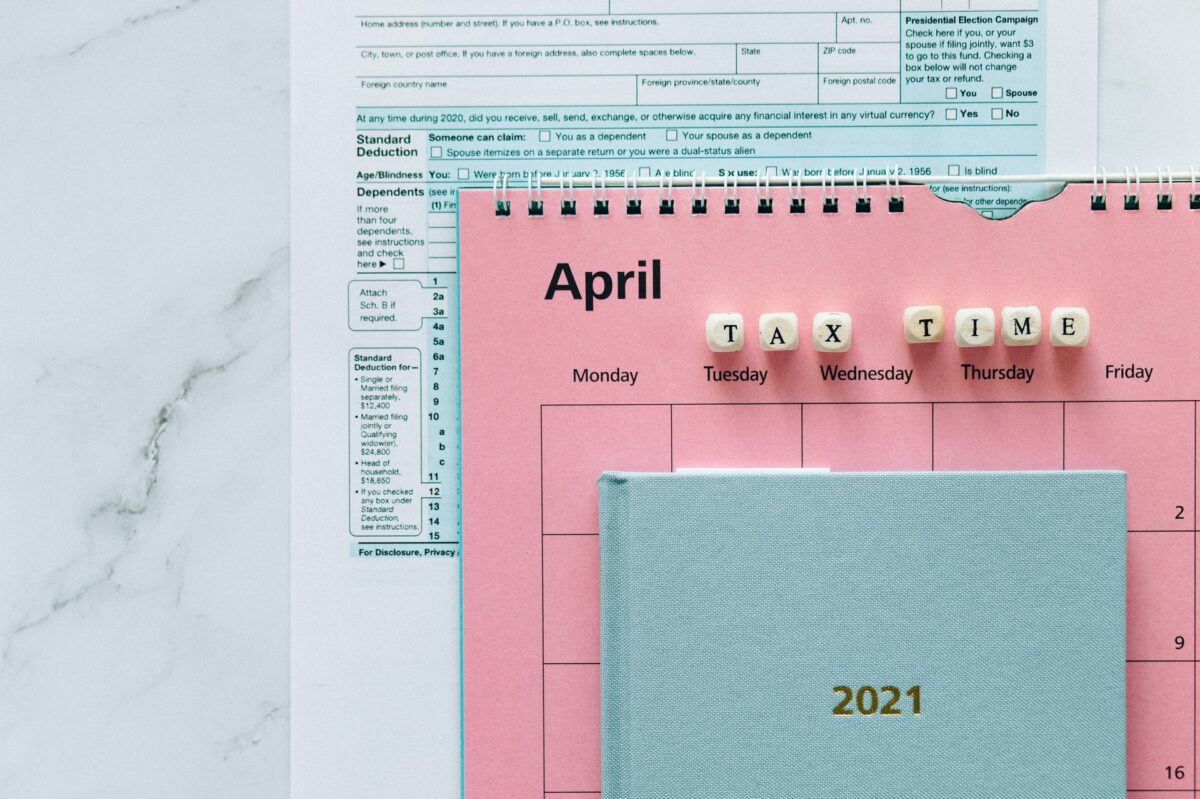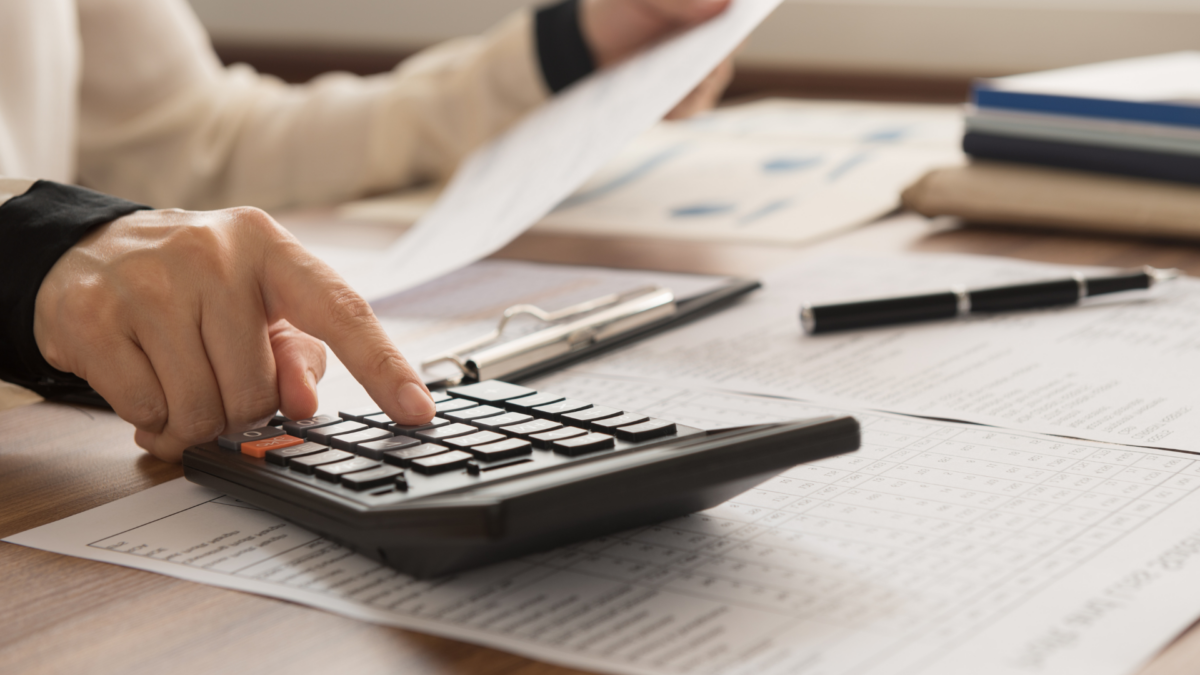Why You Should Hire a Tax Professional for Your Tax Return
- Lorne Noble

To DIY, Tax Prep Software or Hire an Accountant?
When it comes to completing your business’s tax return, it would seem there are endless options to do so. So how do you choose the right option for your business? Is doing them yourself ever a good idea? Is tax preparation software as worthwhile as hiring a professional tax accountant? Is saving money in the short term good for your business in the long term? We’ll answer all of these questions and more upcoming.
What You Should Know About DIYing Your Taxes
As a business owner, you’re probably familiar with the concept of bootstrapping. And you’re likely the person prepared to take on any and every task that needs to get done because at the end of the day your business is your responsibility. So why should your business’s tax return be any different, especially since you can save money on the preparation? And to that, I say, “At what cost do your DIY efforts come?”
We all know that time is money. With that in mind are you prepared to pull together all your documents, research the proper forms, instructions, and rules and then navigate filling out the applicable tax forms, and finally checking and recheck your work? This alone could take you 20-50+ hours depending on the complexity of your business and how comfortable you are with tax forms.
On top of the actual time you would have to spend preparing your own tax return, you also have to consider the cost of missing deduction and credit opportunities and making mistakes in your calculations. The tax code is something like 70,000 pages long, and it’s a tax accountant’s job to be familiar with the ins and outs of the tax code as they relate to your business. How familiar are you with the tax code and how comfortable are you with translating how it relates to your business? All this to say, there’s simply a lot to take into account and we wouldn’t want you to miss out or heaven forbid make a huge mistake costing you more time and more money than you’ve already committed.
What You Should Know About Tax Prep Software
If the idea of preparing your own tax return scares you, you may think the next best thing to a DIY job that will still save you money, is using a tax preparation software like TurboTax. Though a tax prep software seems like a great middle-ground between a full DIY and hiring an accountant, it still misses the boat in a number of key areas.
We will admit, that tax prep software does have the magical advantage of somehow taking your crummy cell phone pictures of your W2 and inputting that information into a tax form automatically, but the buck stops there. Tax prep software is really only good for one thing, basic tax compliance. They rely on their programming to determine deductions and credits, so they can’t get creative and identify specific ways to save you money. Also, if you’re not that familiar with the tax code, you may not know how to answer the prompt questions within the software to begin with.
They’re not a real person and don’t know your business history so they can’t ask the right questions to ensure all of your documents have been accounted for and all applicable credits and deductions have been included. And maybe most importantly, they can’t provide any tax planning advice.
The bottom line is, business tax returns are already more complex than personal tax returns, and the more your company grows and expands the more complex your tax circumstances can become essentially making the “ease” and “cost-savings” offered by a tax prep software obsolete.
The Benefits of Working with a Tax Accountant
We’ve touched on the DIY route and the tax software route, and now it’s time to discuss the star of the show, the big wigs of tax season, a professional, certified tax accountant. Tax accountants are worth the potentially higher price point for a number of reasons including the following:
Relationship-Based Service
Whether you go full DIY or semi DIY with a software, there is no one to turn to but yourself (and Google) to ask your tax questions and make sure you’re preparing your return properly. But with a tax accountant, you can have face-to-face conversations about your business’s taxes, build an ongoing report, and history that will help you maximize your tax planning opportunities in the long term.
For example, each year your tax accountant can audit and review your prior year’s return to ensure you include everything you worked up last year and any new opportunities based on the prior year’s activities. Or if your business switched from an LLC to a C-corp, your accountant will be able to help you understand the difference in tax requirements and make sure you’re meeting any new requirements.
They’re Tax Code Geeks
If 2020 and 2021 taught us anything, it’s that the tax code is evolving all the time. And depending on the year, this can have major or minor impacts on your tax obligations, but often includes knowing tax code nuances, the potential for new forms, and newly required documentation. As a business owner, you’re likely knee-deep in leading your company and don’t necessarily have the time to make note of every tax code update to determine how it affects your business return. But your tax accountant participates in continuing education and has access to sound information on tax code updates through their certifications and industry organizations which help them apply updates properly to their client’s returns.
Tax Planning vs. Tax Compliance
Conversations about taxes often center on two focus areas, tax planning, and tax compliance. The former is more about planning business operations and transactions before they occur to minimize tax obligations at the end of the year while the latter is about tax prep, forms, checking boxes, and meeting government requirements.
While tax prep software is great and all, it’s really only useful for tax compliance. Business returns are already more complex than personal returns, and the bigger the business becomes, the more impact financial decisions have on your taxes and the more complex your return gets. A tax prep software simply can’t offer tax planning advice, that’s not their purpose. However, a tax accountant can, and the longer you work with your accountant and the more report you build the better and better the tax planning advice they can provide!
Long Term Savings
Though you might be able to brag to your friends about doing your own taxes, can you say you did them exceptionally well? Can you say you found a little-known tax credit that saved you thousands of dollars? Can you say you weren’t even that sad about writing the IRS a check? I imagine probably not.
It can be more than difficult to DIY or even use a software and expect to find creative, not run-of-the-mill tax credits and deductions if you have no tax expertise. Just because you know how to wrap a sore knee with an ace bandage, doesn’t make you a medical expert, and no one would expect that of you either. The same goes with the tax code, just because you can file your own return, doesn’t mean you’re an expert and we don’t expect you to be either.
A professional tax accountant, however, is an expert so you can expect more of them when it comes to discovering great ways to reduce your tax burden. It’s their job to stay informed on the tax code and provide tax planning advice to you.
Why Is It Important to Use a Professional Tax Expert?
We’ve shared a lot of information in this article, so let’s recap why it’s important to use a professional tax accountant to complete your business’s tax return instead of DIYing them yourself or with a software. A tax accountant can:
- Have a real conversation with you about your tax burden and offer timely advice.
- It’s their job to be informed about the tax code and any recent updates.
- Not only help with tax compliance but also with ongoing tax planning.
- Effectively apply the tax code to your business to find savings opportunities that you might otherwise be unaware of.
DIY is Not Worth the Risk
There are some things in life that a DIY job won’t make a lick of difference for. Painting that accent wall in your living room, or hanging your own shelving – these are super low-risk activities that even a shoddy job won’t cost you much in the long run. But when preparing your own business tax return, there’s much more at stake. Mistakes or omissions can cost you thousands of dollars and there’s even a chance an audit can be waiting to surprise you in the future. For this reason alone, it’s best to leave tax preparation to professionals.
If you’re looking for a tax accountant to build a long-term relationship with, we hope you will consider the experts at Simple Startup. All you have to do is book a quick meeting and we’ll help you tackle your taxes like a pro.

About Lorne Noble
Other Tax Resources

10 Documents to Save for Tax Season
Preparation is the Key Alexander Graham Bell once said, “Before anything else, preparation is the key to success.” He had to be talking about tax

What Are the Tax Implications of a C-Corp vs. an S-Corp?
As you’ll probably already know, business are built on a host of decisions, big and small. One such decision is the type of entity you

23 Tips to Keep Money in Your Business Heading into Tax Season
Filing your business’s taxes can sometimes feel like a necessary evil, making tax season a very stressful time for a small to midsize business (SMB)

Why You Should Hire a Tax Professional for Your Tax Return
To DIY, Tax Prep Software or Hire an Accountant? When it comes to completing your business’s tax return, it would seem there are endless options